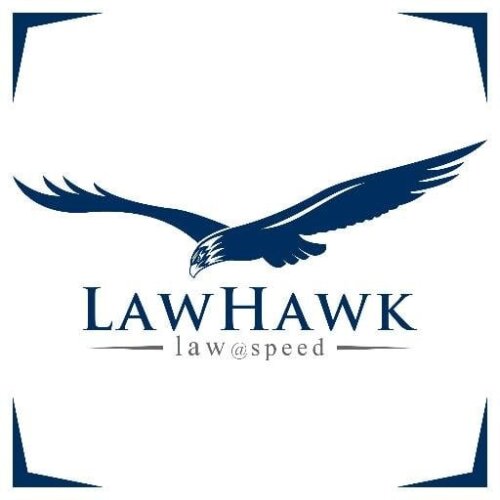Best Telecommunications and Broadcast Lawyers in New Zealand
Share your needs with us, get contacted by law firms.
Free. Takes 2 min.
Or refine your search by selecting a city:
List of the best lawyers in New Zealand
About Telecommunications and Broadcast Law in New Zealand:
Telecommunications and Broadcast law in New Zealand regulates the communications industry, encompassing telecommunication services, broadcasting, and digital media. These laws govern the licensing and regulation of telecommunications and broadcasting providers, as well as consumer rights, competition, and privacy issues within these sectors.
Why You May Need a Lawyer:
You may need a lawyer specializing in Telecommunications and Broadcast law in New Zealand if you are facing disputes related to licensing, compliance with regulations, contract negotiations, competition issues, or consumer complaints. Legal advice can help navigate complex laws and regulations in the telecommunications and broadcasting industry, ensuring compliance and protecting your rights.
Local Laws Overview:
In New Zealand, the key laws governing Telecommunications and Broadcast include the Telecommunications Act 2001 and the Broadcasting Act 1989. These laws establish the regulatory framework for the industry, addressing issues such as licensing, content regulations, competition, and consumer protection. Additionally, the Telecommunications Forum (TCF) sets industry standards and codes of practice for telecommunications providers.
Frequently Asked Questions:
1. What are the requirements for obtaining a telecommunications license in New Zealand?
Telecommunications licenses in New Zealand are issued by the New Zealand Telecommunications Commissioner and are subject to compliance with regulatory requirements, including technical standards, consumer protection provisions, and competition regulations.
2. How are broadcasting content regulations enforced in New Zealand?
Content regulations for broadcasting in New Zealand are overseen by the Broadcasting Standards Authority (BSA), which ensures compliance with standards of decency, accuracy, fairness, and privacy. The BSA has the authority to investigate complaints and impose penalties for breaches of broadcasting codes.
3. Can telecommunications providers in New Zealand engage in anti-competitive practices?
No, anti-competitive practices such as price-fixing, market manipulation, or abuse of dominant market position are prohibited under New Zealand's competition laws. The Commerce Commission regulates competition in the telecommunications sector and can take enforcement action against companies engaging in anti-competitive behavior.
4. What rights do consumers have in relation to telecommunications and broadcasting services?
Consumers in New Zealand have rights to clear pricing information, reliable service quality, and protection of their privacy when using telecommunications and broadcasting services. The Telecommunications Dispute Resolution Scheme (TDR) provides a process for resolving disputes between consumers and service providers.
5. How are disputes between telecommunications providers resolved in New Zealand?
Disputes between telecommunications providers in New Zealand are typically resolved through negotiation, mediation, or arbitration. The Telecommunications Commissioner and the Commerce Commission can intervene in disputes to facilitate resolution and enforce compliance with regulations.
6. What are the implications of breaching broadcasting content standards in New Zealand?
Breaches of broadcasting content standards in New Zealand can result in penalties, warnings, corrective orders, or license revocation by the Broadcasting Standards Authority. Broadcasters are required to comply with codes of practice and standards to maintain their license and reputation.
7. Are there specific regulations for telecommunications and broadcasting during emergencies in New Zealand?
Yes, New Zealand's Civil Defence Emergency Management Act 2002 includes provisions for broadcasting emergency warnings and information. Telecommunications providers are required to support emergency response efforts and ensure the continuity of essential services during emergencies.
8. How does New Zealand regulate foreign investment in the telecommunications and broadcasting sectors?
New Zealand's Overseas Investment Act 2005 regulates foreign investment in telecommunications and broadcasting assets, requiring approval for significant investments that may impact national security or public interests. The Overseas Investment Office assesses applications for foreign ownership of sensitive assets in these sectors.
9. What role do industry associations play in New Zealand's telecommunications and broadcasting sectors?
Industry associations such as the Telecommunications Forum (TCF) and the Broadcasting, Communications, and Digital Media Ministerial Advisory Group (BCDMAG) collaborate with government agencies and stakeholders to develop industry standards, codes of practice, and policy recommendations for telecommunications and broadcasting in New Zealand.
10. How can consumers lodge complaints against telecommunications or broadcasting providers in New Zealand?
Consumers can lodge complaints against telecommunications or broadcasting providers in New Zealand through the Telecommunications Dispute Resolution Scheme (TDR) for telecommunications disputes or the Broadcasting Standards Authority (BSA) for broadcasting complaints. These agencies provide a formal process for resolving disputes and addressing consumer concerns.
Additional Resources:
For more information on Telecommunications and Broadcasting in New Zealand, you can visit the websites of the Ministry of Business, Innovation and Employment (MBIE), the Commerce Commission, the Broadcasting Standards Authority (BSA), and the Telecommunications Forum (TCF). These organizations provide valuable resources and guidance on regulatory requirements, industry standards, and consumer rights in the telecommunications and broadcasting sectors.
Next Steps:
If you require legal assistance or advice in the field of Telecommunications and Broadcast in New Zealand, it is important to consult with a specialist lawyer who can provide tailored guidance and representation. You can contact a law firm specializing in communications law or regulatory compliance to discuss your specific needs and explore the options available to protect your rights and interests in the telecommunications and broadcasting industry.
Lawzana helps you find the best lawyers and law firms in New Zealand through a curated and pre-screened list of qualified legal professionals. Our platform offers rankings and detailed profiles of attorneys and law firms, allowing you to compare based on practice areas, including Telecommunications and Broadcast, experience, and client feedback.
Each profile includes a description of the firm's areas of practice, client reviews, team members and partners, year of establishment, spoken languages, office locations, contact information, social media presence, and any published articles or resources. Most firms on our platform speak English and are experienced in both local and international legal matters.
Get a quote from top-rated law firms in New Zealand — quickly, securely, and without unnecessary hassle.
Disclaimer:
The information provided on this page is for general informational purposes only and does not constitute legal advice. While we strive to ensure the accuracy and relevance of the content, legal information may change over time, and interpretations of the law can vary. You should always consult with a qualified legal professional for advice specific to your situation.
We disclaim all liability for actions taken or not taken based on the content of this page. If you believe any information is incorrect or outdated, please contact us, and we will review and update it where appropriate.
Browse telecommunications and broadcast law firms by city in New Zealand
Refine your search by selecting a city.









